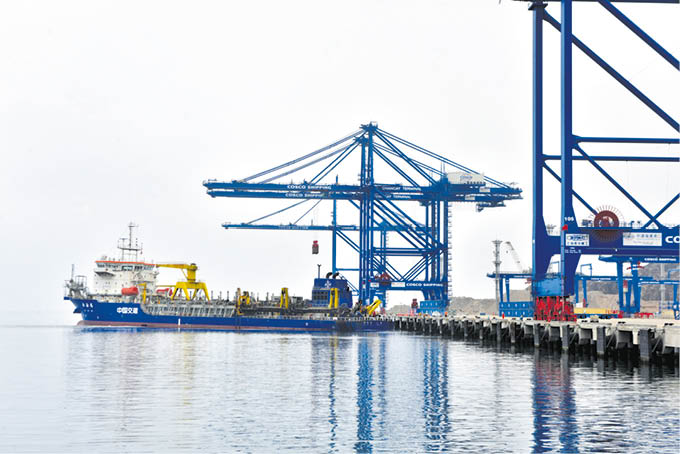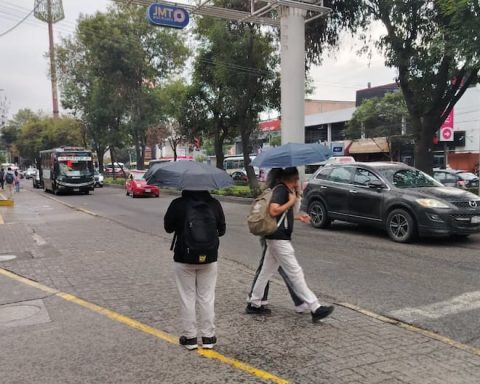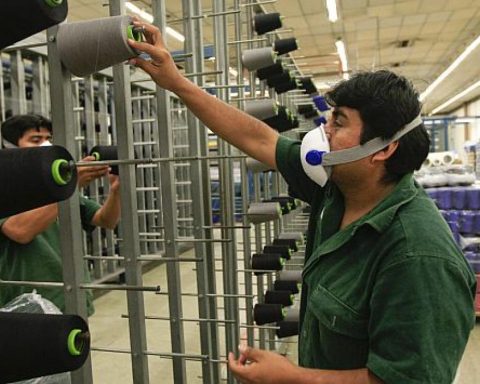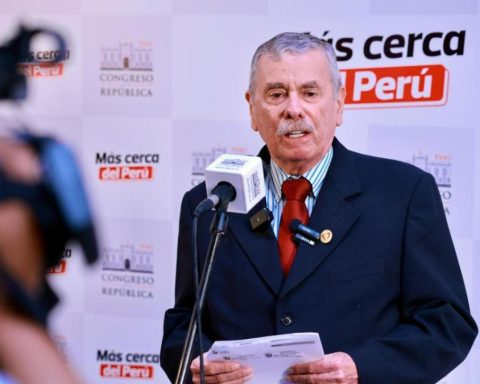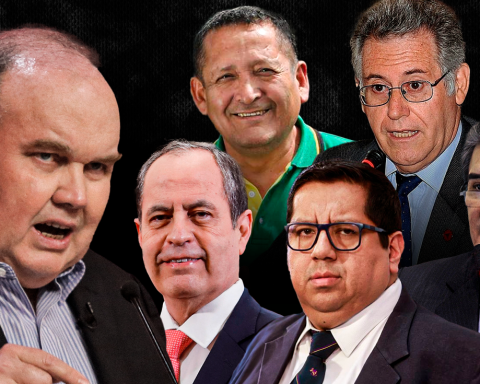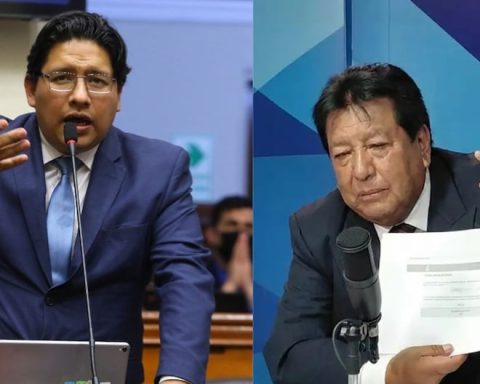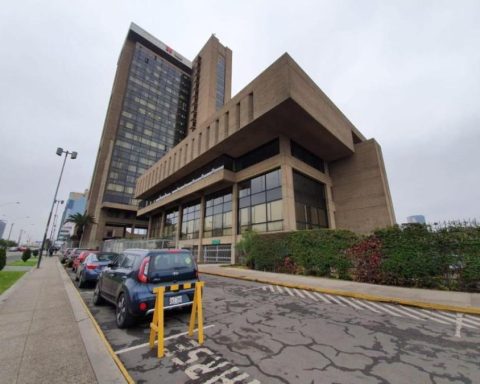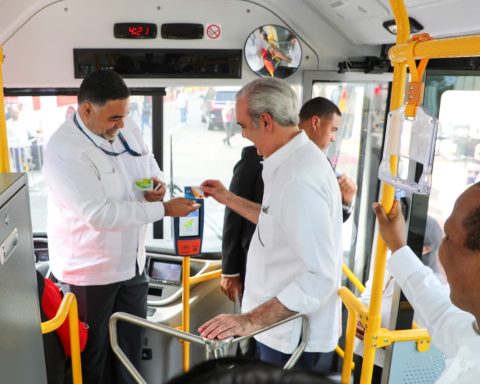This Thursday the 14th the Port of Chancaywhich marks the beginning of the development of Peru as a logistics center in South America. This ‘blessed port’ that will see our children and new generations grow up, giving them a better future, has an area of 141 hectares.
Look: The highest authority of the IMF arrives in Peru
To give an idea of the magnitude of this work, its area is equivalent to 200 soccer fields, 80% larger than the port of Callao. It is a multipurpose port, with four docks that will move different types of cargo: two for general goods, such as grain, and two for containers.
Since not everything can be done overnight, what is going to be inaugurated is the first stage of the port, of a total of four. It has the capacity to move 1.5 million containers and between 6 and 8 million tons of bulk cargo, generating 900 current jobs. During the construction stage, 3,300 direct jobs and many other indirect jobs were created.
According to Admiral Carlos Tejada, general manager of the port, the work required an investment of a little more than US$1.3 billion and nothing has been spared, because since the work was designed and the operation was planned, the standards were taken into account. highest levels of sustainability in its construction. “Social, environmental, safety and commitment,” says Tejada.
THE HISTORY
How do you decide to carry out a private project like this in a country that is 133rd in the ranking of ease of doing business among 190 economies, where document management for exporting and importing takes twice as long as Brazil, which is also at the tail of the table.
Tejada maintains that this, which to some may sound crazy, is due to the trust of port shareholders in our country. First of all, according to Tejada, the visionary of the port was Admiral Juan Ribaudo, who began the project in 2007 together with Admiral José Noriega. Both developed the feasibility of the port.
Then, at the end of 2011, Ribaudo and his partner decide to sell half of their stake to Volcanowhich accepted the offer, because its shareholders José Picasso, José Ignacio de Romaña, as well as the latter’s mother, trusted the country and the project.
Look: Confiep criticizes the election of Alejandro Narváez as president of Petroperú
“I consider all of them heroes, because it is very difficult to do work in our country with all the political instability, overregulation, etc., that exists. “They always had faith that this was positive,” he mentions.
Added to the confidence of Peruvian shareholders was that of international shareholders. Tejada maintains that, in December 2015, when he had already been in the company for a year, they went out to look for a partner, but this event coincided with Ribaudo’s departure.
In the search process, they knocked on the door of Cosco Shipping Corporation, because it was merging with the company China Shipping Corporation to form the largest logistics conglomerate in the world.
Only in February 2017, Cosco agreed to participate due to the opportunity that Peru has to create a logistics and technological cluster between the Callao and Chancay, as well as the opportunity for the arrival of technological transformation companies in the country to create special economic zones, a project that rests on the dream of the righteous in the Plenary of Congress.
“With the Port of Chancay, Cosco will provide two direct routes to Asia per week. For the first time in history, on the entire Pacific coast, there will be two weekly routes from Chancay to Shanghai, and if necessary, three,” he says.
THE INVESTMENT
Although they had the support of their shareholders, a greater effort was necessary for the project to move forward. Therefore, the port was built with sustainable standards.
Firstly, Tejada comments that, in order not to affect the community in the area, the port has been designed so that there is no port activity in a public area, as occurs today in Callao. Thus, vehicles coming from the Panamericana to the port, and vice versa, pass through a segregated road system.
The “Entry Complex”, located inside the port, makes waiting for trucks easier. After passing through this, the trucks head to Customs, where there are 14 gates, divided into Export and Import. Then, they go through a tunnel that allows them to reach the port without affecting city traffic.
Look: Petroperú Board of Directors begins with two resignations
“The port has three components: the entrance complex, the tunnel and the operational area, which is where the docks are. So, the idea is that a truck or a load that leaves the dock is on the Panamericana in three minutes,” he comments after indicating that the tunnel has required an investment of US$120 million and that “a lot of thought has gone into sustainability criteria at 40 years”.
Likewise, in order to avoid conspiracy theories that the port is a military geostrategic area, a Government-to-Government agreement has been reached with the United States for this country to install scanners for cargo transportation.
“The American Government has donated three very high-tech scanners. These scanners will prevent trucks, which pass at a speed of 15 kilometers per hour, from having to stop. That is, it will be the first port where 100% of the cargo that is exported will be scanned,” he says.
Additionally, within this commitment to social issues, the port has financed public investment projects for the city that include water and sewage services, education and health, for which they have allocated US$40 million. “This both for social development and in the planning part,” he indicates.
Also, a building has been built inside the port for Customs, according to the requirements of the state. And it has signed an agreement with Migrations, Senasa, DGANP and the Anti-Drug Police. A police complex is going to be built for all security.
THIS PORT EXISTS
Thanks to this effort, Peru today has one of the most modern ports in South America in technology and will be the most significant in South America. To give us an idea of this modernity, the vehicles that transport the containers are electric and autonomous; that is, they are operated through software.
Look: Mining formalization: A new path of unity
Furthermore, unlike a normal port that, on average, handles 30 containers per hour per crane (hour/crane), Chancay can manage 50 containers per hour/crane, increasing productivity by 50% and reducing energy consumption by 40%.
“This allows the arriving ship to unload in 6 or 7 hours and leave. So, when the ship goes to Chancay, they will charge a lower freight rate, because there will be port efficiency,” he says.
Likewise, the port has the largest crane in all of America. This is 96 meters high, because the port is going to receive ships with 24 thousand containers, so it needs greater height.
Both this crane and the others in the mega-project are autonomous and are moved by software. These cranes have the capacity to ‘pull’ 50 tons of cargo, that is, they can move 10 elephants at the same time, from one place to another.
With all this infrastructure in place, what remains is for the rest of the projects to be executed, such as the construction of a railway that allows the transfer of goods more efficiently, the creation of special economic zones, among others, to achieve the development of Peru as a logistics hub.
Take advantage of the NEW EXPERIENCE, receive our enriched digital newspaper by mail and WhatsApp. Peru21 ePaper.
Now available in Yape! Find us at YAPE Promos.
RECOMMENDED VIDEO
